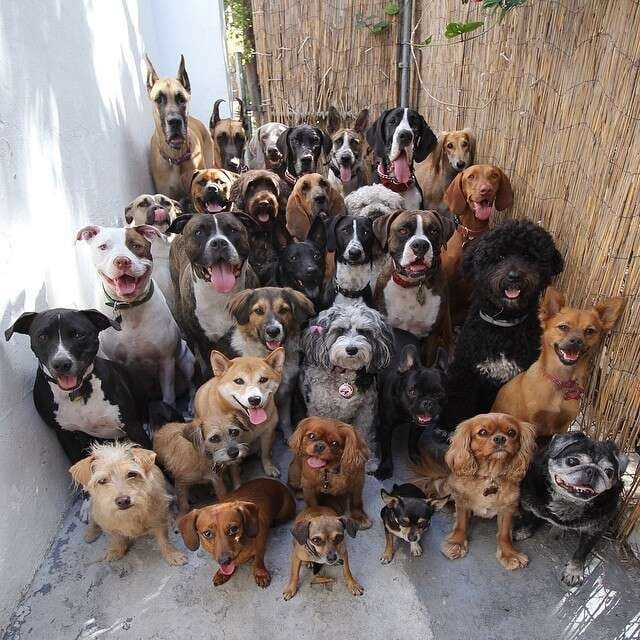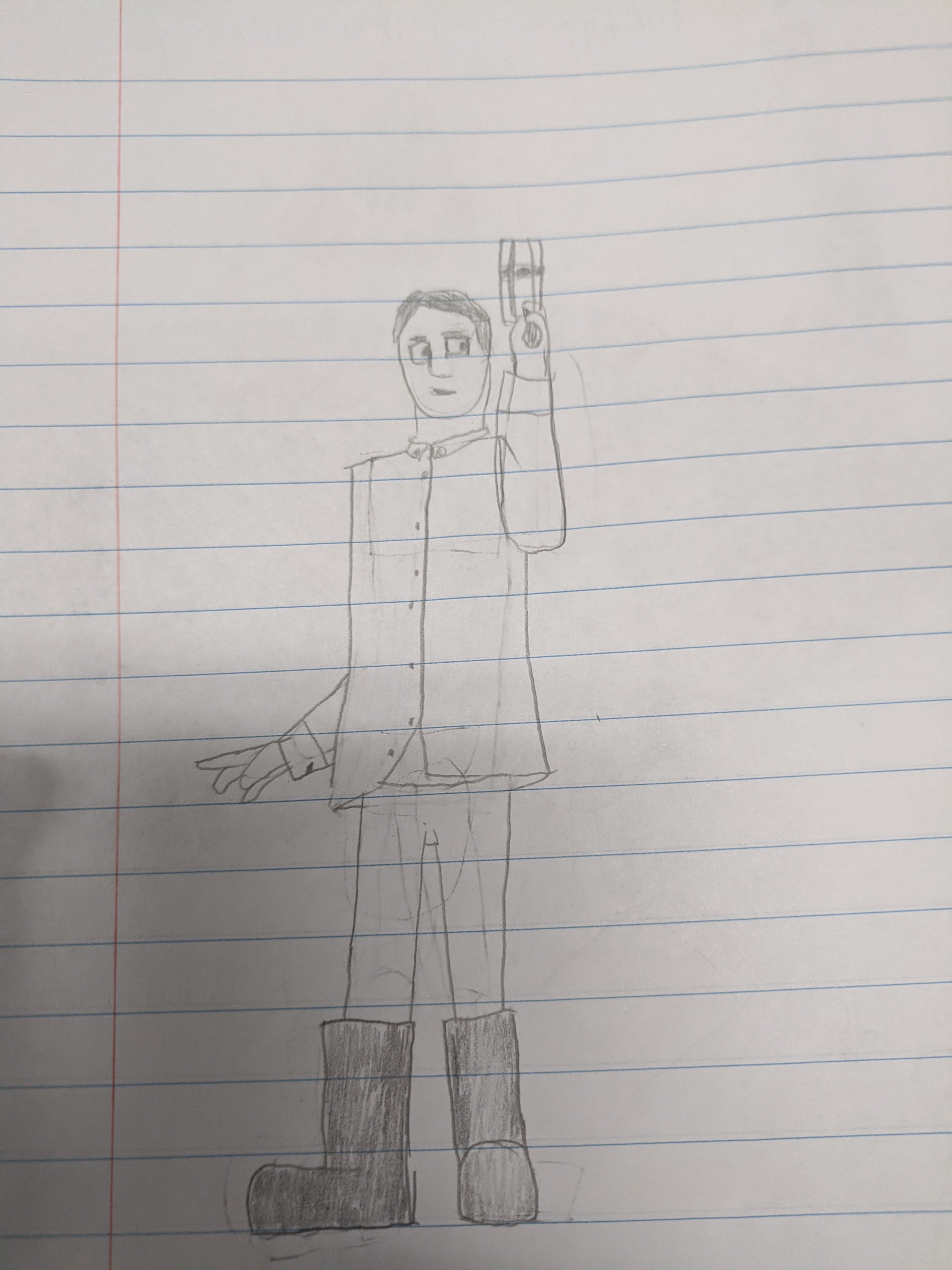OK, I hope my question doesn’t get misunderstood, I can see how that could happen.
Just a product of overthinking.
Idea is that we can live fairly easily even with some diseases/disorders which could be-life threatening. Many of these are hereditary.
Since modern medicine increases our survival capabilities, the “weaker” individuals can also survive and have offsprings that could potentially inherit these weaknesses, and as this continues it could perhaps leave nearly all people suffering from such conditions further into future.
Does that sound like a realistic scenario? (Assuming we don’t destroy ourselves along with the environment first…)
Natural selection led to our intelligence to be able to made medicine in the first place.
Survival of the fittest just means the most adapted to the current environment. Our current environment has medicine so we’re adapted to that. If that suddenly changes then sure it would be an issue, but so would a climate difference of even a few degrees, a slight difference in the chemical make up of air, etc.
Yes absolutely. We’ve already affected our biology and evolution.
Birth control, antibiotics, are examples
Given time, and even greater lifespans, we will have a larger impact on the path of our evolution.
As a thought experiment let’s imagine humans that live for 2,000 years. What does this mean for our adaptability to environmental changes? What does this mean for our fertility?
If nothing else changes, the carrying capacity for new humans will decrease, if the average lifespan goes up to 2,000 years.
From an evolutionary perspective, the question is always what is the current selection pressure? Historically it’s almost always been intelligence plus something else, melanin in the skin, the ability to metabolize lactose into adulthood, etc…
I would argue that modern medicine prevents non-selective deaths. We try and keep everyone alive, not just the idiots.
i always thought that it was the greater volume of humans, the greater the genetic diversity
There’s barely any pressure to extinguish “bad” traits, though.
If you’re the idiot who eats every berry you can find, cavemen can’t save you and your genes disappear. Modern medicine can and will save you, so you can create offspring and the berryeaters keep their proud heritage alive.
Now, what is considered “good” or “bad” is of course highly debatable, but currently we have effectively no survival pressure, the only selection is how many children you get.
OG Luci is right, though. There are far more people due to modern medicine. So if we suddenly lose it, there will be a lot of death. But there is more population and diversity to draw from the survivors. So I don’t think it’s a threat to the species.
But that if that “idiot” does propagate, but so does everyone else, no skin off the species back. If the selective pressure returns, well then the others keep going.
It already has affected natural-selection.
I think you have a point. We are making ourselves dependent on our technology. There will come a time where the constant fight our bodies deliver against disease and defects cannot be maintained without the technology created as a consequence of our highly complex society. If we continue on our current trajectory there might come a point of no return. If you want to return to monke now’s the time, I guess?
Pretty much everyone here either misunderstands how evolution works, or is willfully ignoring it to push their viewpoint.
Humans at this point have very little evolutionary pressure from natural selection. We aren’t getting weaker, shorter, taller, or anything like that from natural selection because those traits aren’t killing people.
The main driving factors for human evolution are sexual selection, random mutation, and genetic drift. There are still some poorer areas disease may still play a not insignificant part, but even that is fairly minimal since people largely live to reproductive age.
Human evolution has been fairly stagnant for quite a while. The differences most people would notice are from changes in diet, environment, and other external forces. For natural selection to pressure evolution we would need to have a significant portion of the population sure before they are able to reproduce.
In this age of contraception, it’s more a matter of wanting to reproduce (and how often) rather than merely being able to. I can’t shake off the impression that less educated people are reproducing at a way higher pace, producing many offspring of which in before times many would not have reached reproduction themselves, but now they do.
You should watch the movie Idiocraty.
I’ve seen it. And less educated/poor doesn’t mean genetically less intelligent. And even if it did, all that means is a change in the average gene distribution. A large enough portion of every population still reproduces that we are unlikely to dead end any major gene variations. So we still maintain a diverse gene pool, and if something happens to make natural selection play a role, we still have enough variation to adapt to changes.
I think the point Idiocracy was trying to convey had less to do with the genetics of the stupid people breeding, and more so the downward spiral of intelligence due to policy societal and governmental changes. Dumb people, make dumb policy choices, including with regard to education. To me, it stands to reason that the downward slope of intelligence is percitpitated on how effective governmental policy is and how well education is distributed.
Agreed. Plus it is a satire. It was making a point. It wasn’t required to be factually accurate through the entire movie.
My disagreement was that there was any evolutionary downward pressure on human capability. We can do increasingly dumber things without it being a genetic change. Propaganda, indoctrination, and selective access to information can play a huge role in how people develop and ultimately behave.
Pretty much everyone here either misunderstands how evolution works, or is willfully ignoring it to push their viewpoint.
Yes! Finally someone else who knows how…
Humans at this point have very little evolutionary pressure from natural selection.
Oh come on! Such a strong start but then you fell on your face. Natural selection is the differential survival and reproduction of individuals due to differences in phenotype. It never lets up. It’s more about reproduction than staying alive. Natural selection is happening every time someone reproduces more than someone else.
Natural selection isn’t the only thing at play though. That solely refers to the organism best adapted to the environment being more likely to survive and produce offspring. Essentially everyone in our population survives to be able to produce offspring.
Sexual selection plays a much bigger part now. That isn’t someone being the most adapted to the environment, it’s someone being the most attractive to a mate. There are plenty of adaptations across nature that are maladaptive to survival, but are selected for regardless.
Then there are random mutations and genetic drift. Those happen in every population. That is more just a matter of chance.
We have found ways to adapt to our environment outside of evolution. So we no longer have a significant natural selection process.
This has been happening for a while now and the results of which are the voting populace of the anti-intellectual movement that is explained in the documentary film, Idiocracy.
Oh boy, a population genetics question in the wild.
In technical terms what you are asking is:
When a selection pressure is removed for a deleterious allele, what happens to the allelic frequency on the population?
The answer: they remain stable in the population, unchanging from when the selection pressure was removed. Every generation will have the same ratio of affected individuals as the previous one
Look up Hardy-Weinberg Equilibrium for more info.
Hardy-Weinberg isn’t appropriate here. If all alleles were neutral, they’d get slowly lost or move toward fixation at a rate proportional to the mutation rate by genetic drift. In the absence of negative selection, new variants that are deleterious without modern medicine would do a random walk in allele frequency, meaning some would become prevalent. But the population is so large they would take far too long to be completely fixed.
Hardy-Weinberg is a model that makes by true assumptions (like zero mutation rate and infinite, isolated populations).
You seem to be lost in the weeds a bit. Of course hardy-weinberg is a model that never exists in reality. It’s a good method to explain the importance of selection pressure on populations.
Without an active selection agent on the allele, it’s frequency in the population remains the same.
Now in reality there is no such thing as zero selection pressure on any allele. Having a deleterious or advantageous allele 49.99cM away exerts selection pressure.
However allelic frequencies without a strong selection acting on them remain relatively stable.
You’re not understanding. Without selection, real populations would have changing allele frequencies. They would not stay static. That’s because random sampling exists, but only outside of the H-W model.
Random sampling has a significant effect when the population size is smaller. Say less than 10,000 individuals.
It has very little effect as the population size increases to say something a little more than 8,000,000,000 individuals.
Well that’s interesting, thanks!
If genetic research gets to a point where we can beat any mutations, then probably not.
Yes. Without the selection pressures to minimize disease, we observe more disease in the population over time. This reduces our fitness for any environment without the artificial benefit of modern medicine.
People don’t want to understand because it is difficult and challenges their worldview. Is this an existential risk? Yes. Can we do anything about it? Yes.
I would say that the greater the population (in part thanks to medicine) the greater the chances of beneficial mutations occurring and entering the collective gene pool. I see medicine as a safety net. I’m sure it’s more complicated than that, but that’s my professional take on it, as a musician.
I think a bigger threat to humanity is a LACK of modern medicine. Both because denying people life-saving medicine because you think they’re “weak” is inhumanly cruel, and because of that plague we just had.
I expect gene editing soon to become so cheap that everyone starts customising their children, resulting in a situation analogous to where dogs are now: extreme variability improving the chances for survival by making sure we have the needed people for any situation except gamma ray burst which requires backups far from Earth.

I’ve been working on a sci Fi show where humans have this but they also have the ability to change their current physiology by infecting themselves with modified strains of cancer that slowly replaces you’re body with one you downloaded off the Internet this technology has also sorta obsoleted medicine because if you have a broken leg or infected with a fatel desese so long as the injury doesn’t affect your brain you can just replace your entire body by infecting yourself with genetically modified cancer










